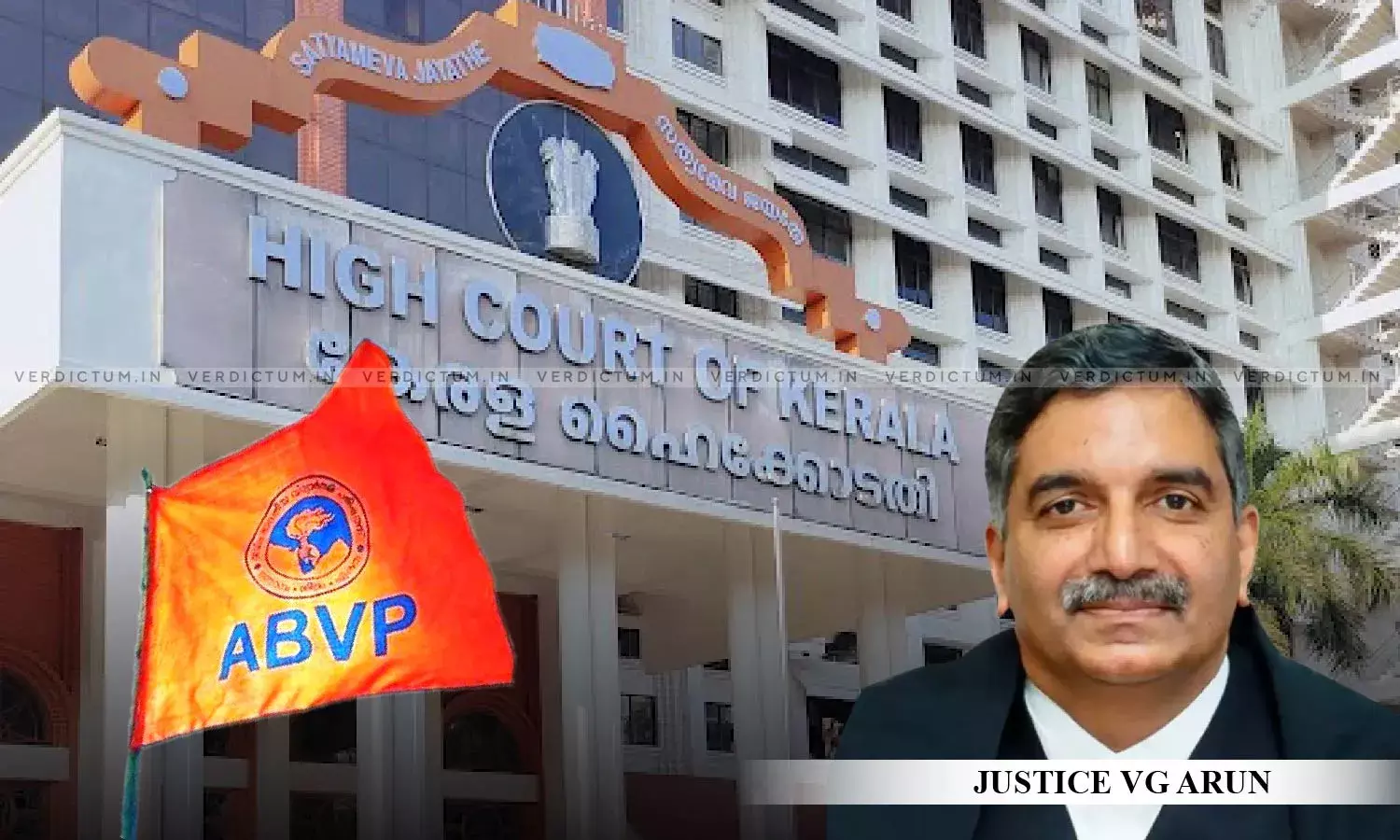High Court Seeks Kerala Police's Response On Plea By ABVP Activists Seeking Compensation For Publication Of Photos In Media After Arrest
The Kerala High Court has sought the response of the Kerala Police on a Writ Petition filed by six students who are associated with the Akhil Bharatiya Vidyarthi Parishad (ABVP) seeking compensation for the Police causing publication of their photographs in media, upon their arrest for bailable offences.
Justice V. G. Arun today asked the Government Pleader appearing for the State and the Police to get instructions on whether the photos that have been published in the media were clicked by Police officers inside the Police Station.
The Petitioners, Stephin Stephan and 5 others were arrested on August 28 for allegedly pelting stones at the ruling party- CPIM's Thiruvananthapuram District office. As per Petitioners, three of them were arrested by the Police from a hospital where one of them was undergoing treatment and the other three were arrested after being called to the Thampanoor Police Station for questioning. All of them were released on the same day on station bail after questioning.
As per the Petitioners, the Police officers in the Thampanoor Police Station clicked their photographs on mobile phones while they were in custody and the same was immediately flashed on a TV news channel and published in all major newspapers on the next day.
"By clicking photographs of the Petitioners while in custody and causing its publication in media, Respondent Nos. 1 to 3 have defamed the Petitioners and have violated the fundamental right of the Petitioner to privacy and a right to life with dignity", the plea says.
The Petitioners have contended that there is no law that permits the Police to click and cause publication of the photographs of arrested accused naming and shaming them.
"Our criminal system is an accusatorial system which requires the prosecuting state to prove beyond reasonable doubt that an accused is guilty as charged. There is no provision in the Code of Criminal Procedure, 1973 empowering Police to publish a photograph of an accused who is not an absconder. In the absence of an enabling law, the Respondents cannot claim that their actions come under reasonable restrictions that can be imposed on fundamental right to privacy of the Petitioner", the petition says.
The plea also says that publishing photographs of the arrested accused will seriously prejudice the fundamental right of the accused to a fair trial. The Petitioners have contended that "The Petitioners, as any other accused, are entitled to presumption of innocence until proven guilty. The investigating agency cannot use media to influence and turn witnesses and public opinion against the accused. By such conduct, the investigating agency is subverting fairness of investigation and weakening the presumption of innocence, which is facet of fair trial".
The Petitioners contend that there is no legitimate state interest or public good in publishing photograph of an arrested accused, especially in a case involving minor offences when the accused is not an absconder from law.
The Petitioners say that they have been targeted deliberately, with malafide intentions, on the instructions of the political higher-ups of the officers involved. "The Respondent No. 2 (Kerala Police) does not have a uniform practice of causing publication of photographs of the accused in all cases of arrest. It has resorted to such an illegal method in the present case only because the ruling political party is interested in the case", the plea says.
The pelting of stones on the CPIM's Thiruvananthapuram District office on August 27 at 2 pm by six persons on three motorbikes caused a huge uproar in the state. It was alleged that ABVP workers did it in retaliation to the attack on the ABVP's state office, allegedly by CPIM workers on August 26. The pelting of stones was captured on CCTV camera and the police officers deployed on duty there could not apprehend the miscreants despite chasing them.
Cause Title: Stephin Stephan & Ors. v. State of Kerala & Ors.




